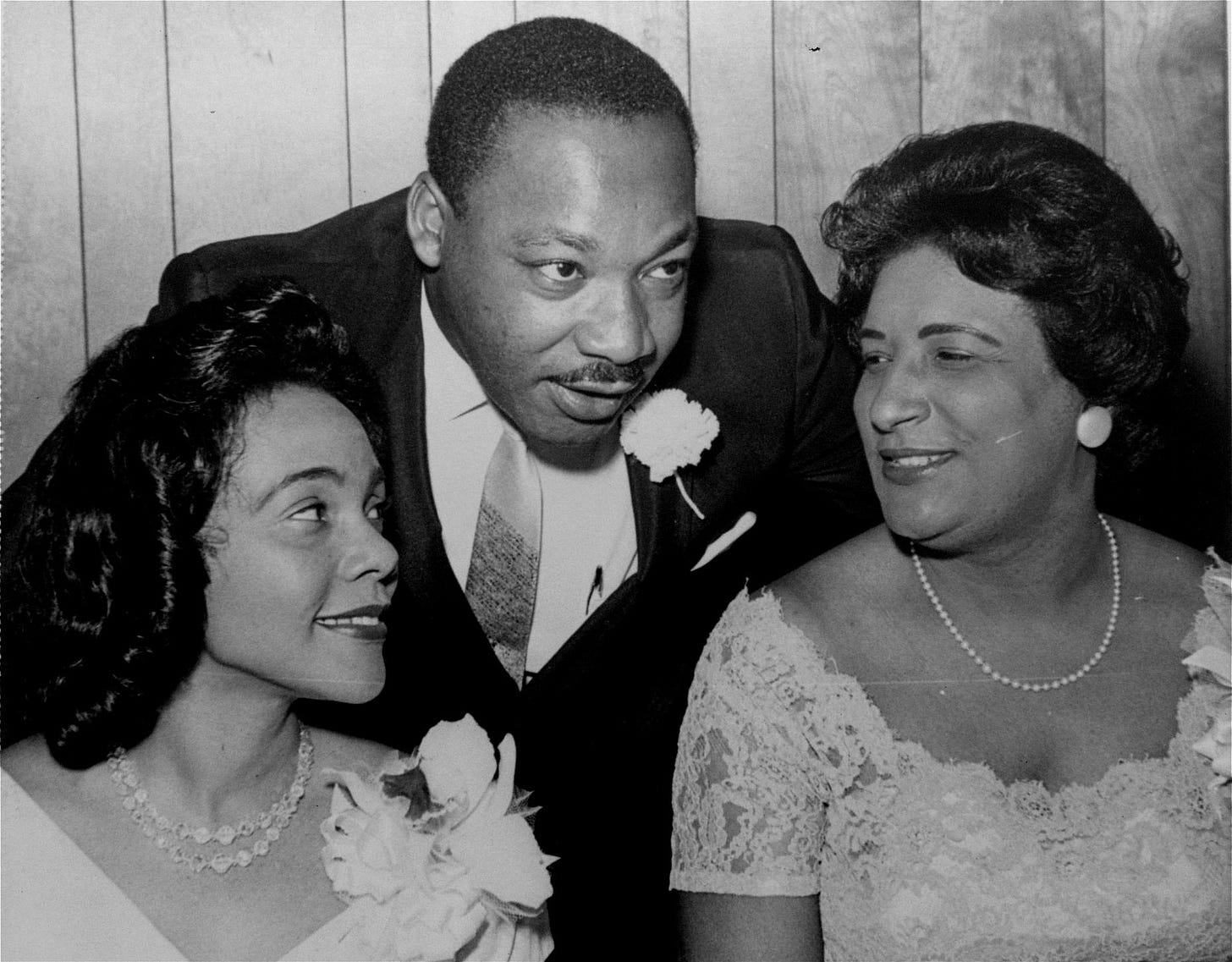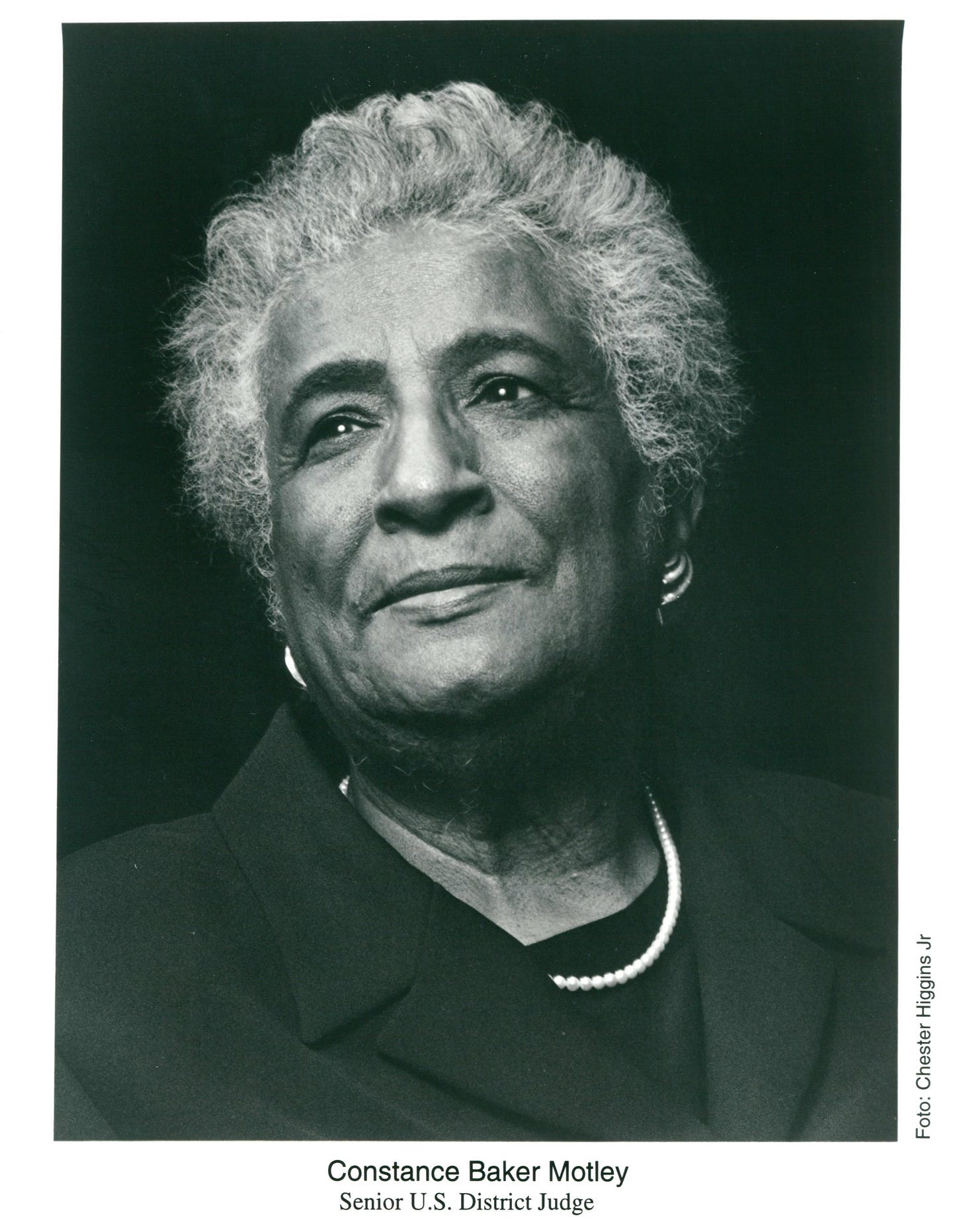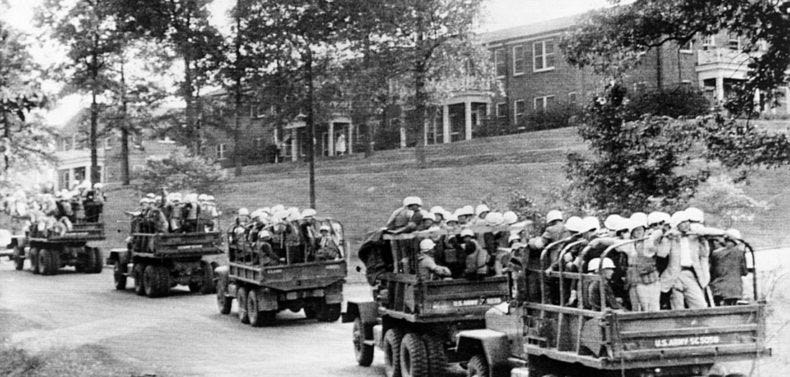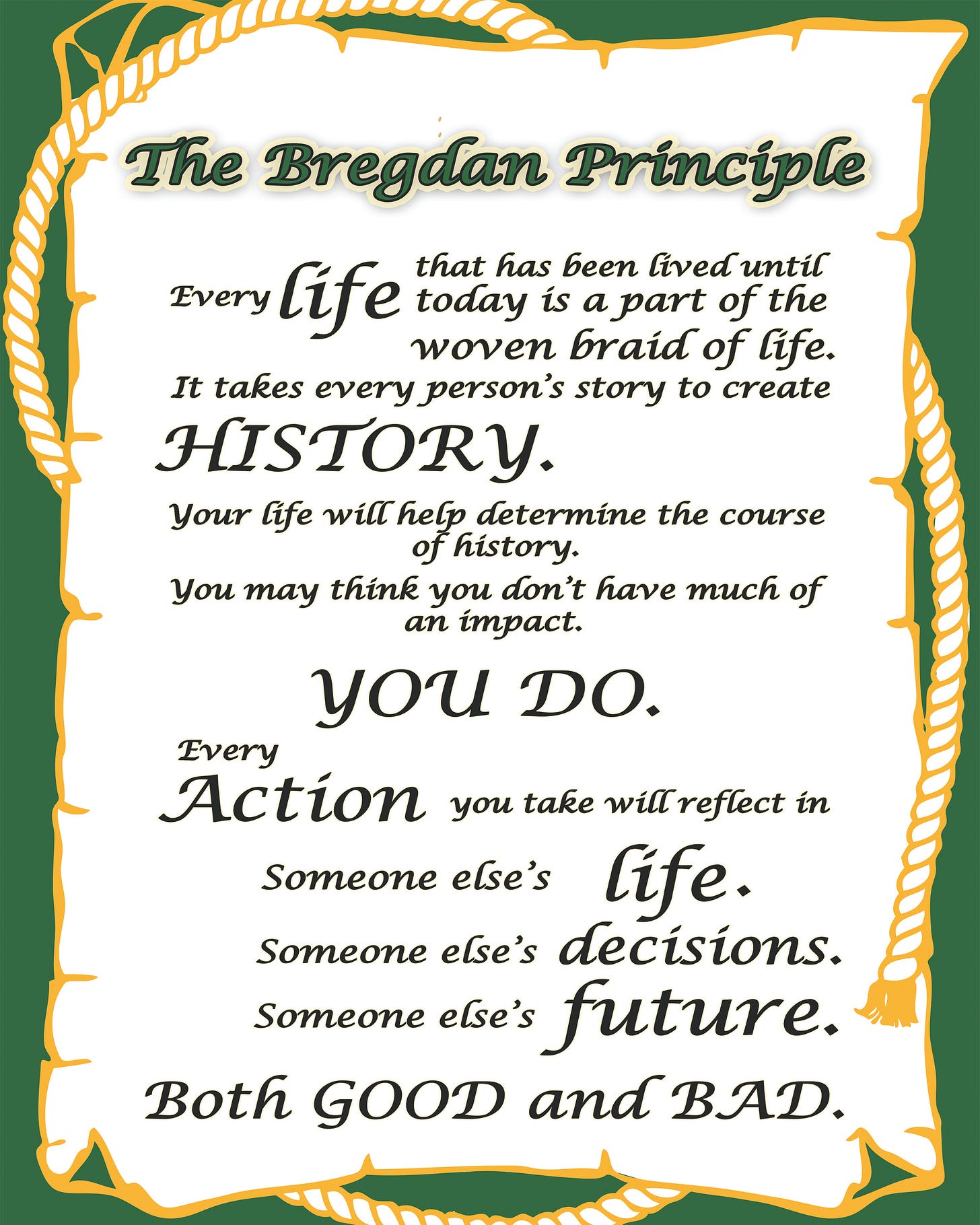Letter 98 - Have You Heard of this Queen??
Hello Bregdan Women!
I finally know who to thank for the desegregation of my junior and senior high school in Charlotte, NC. The joy and impact of my African American friends and basketball teammates has reverberated through my entire life and created the basis for The Bregdan Chronicles. I am beyond grateful!
I first heard of Constance Baker Motley through a Substack letter by Heather Cox Richardson (link below). The one sentence that I read in one of her Letters From An American piqued my interest and took me into a deep dive.
Y’all know I love deep dives! What an amazing Bregdan Woman she was. There will be no end to the impact she will have on history.
My life was merely one of millions that she touched and changed.
There is a LONG list of all she has accomplished, but as you strive to live as a Bregdan Woman, it’s imperative to know how she got there.
Motley was an unlikely civil rights hero. She grew up near Yale University, did not personally experience overt racism until late in high school, and as a young person she was almost totally unaware of black history. Unlike African Americans in the South who were dealing with the horrors of racism, Jim Crow Laws, and regular lynchings during the resurgence of the Ku Klux Klan after World War I, she grew up in the relative safety of the North.
Motley was the 9th of 12 children, born to parents who immigrated from the Caribbean Island of Nevis. Her mother, Rachel, worked as a seamstress and teacher in Nevis. Rachel became a domestic worker in Connecticut, but her true passion was as a community activist. Passionate about equal rights in her new country, Rachel founded the New Haven NAACP.
So, yes, this Bregdan Woman was definitely raised by a Bregdan Woman.
Inspired by her mother’s activism, Motley became president of the New Haven Negro Youth Council during high school and was secretary of the New Haven Adult Community Council. When she was 15, she read books that inspired her interest in black history. She met a minister who taught classes in Black history that focused her attention on civil rights and the underrepresentation of black lawyers.
A spark was ignited.
Motley knew in high school that she wanted to be a lawyer, but there was no money to support that dream during the Great Depression. Her parents recognized their daughter’s brilliance but her dreams to attend college and then law school struck them as absurd. After all, women didn’t get anywhere in the law. Besides, her parents sometimes struggled to afford food and other necessities for their family. They counseled their daughter to become a hairdresser.
I’m so glad that isn’t what happened! Being a hairstylist is wonderful, but it wasn’t what she was meant to do.
After graduating from high school with honors, she went to work with the National Youth Administration – a New Deal Agency sponsored by Franklin D Roosevelt during his presidency, and made possible by Eleanor Roosevelt (a story I’ll tell you another time!). Motley also continued her involvement in community activities.
I’m going to repeat that last sentence…
Motley also continued her involvement in community activities.
This is KEY in how she was able to achieve all she did. Too many young people (or ANY people) who run into roadblocks and challenges in life step away from their dreams and focus on survival – deciding it just wasn’t meant for them to do more than they’re doing.
If you can’t yet do what you dream of doing – DO SOMETHING.
When all the doors and windows seem locked to you – DO SOMETHING.
You never know what might be waiting around the corner – something you’ll never discover if you stop moving.
Motley also continued her involvement in community activities.
Her determination to still follow her passions and make a difference opened the door for her to take the next step. She was only 19 when she gave an impassioned, impressive speech in support of the Black community’s interests at the Dixwell Community House, built for the black citizens of New Haven.
Sitting in the audience was Clarence W. Bladeslee – a white New Haven industrial magnate, a philanthropist and a total stranger. He was also the man who built the Dixwell Community House. He was so impressed with young Constance that he offered to bankroll her education “as far as she wanted to go.”
YES! Motley often said that his intervention in her life was “like a fairy tale”. It certainly was!
Because of his generosity and his ability to see the future impact this young girl could have, she earned her undergraduate degree from New York University and then graduated from Columbia Law School in June of 1946.
From there, she embarked on her path-breaking career to become the “Civil Rights Queen.”
Entire books have been written about her accomplishments , so I’m just going to hit some of the highlights. (You know I’m going to tell you to do your own deep dive. 😊)
From the late 1940’s through the early 1960’s, Motley played a pivotal role in the fight to end racial segregation, putting her own safety at risk in one racial power keg after another. She rose to prominence as the chief courtroom strategist of the civil rights movement.
Her first job was as the first African American female attorney for the NAACP Legal Defense and Educational Fund (LDF) as a civil rights lawyer. She became the lead trial attorney in a number of early and significant civil rights cases – including representing Martin Luther King, Jr, the Freedom Riders, and the Birmingham Children Marchers.
Motely claimed her greatest professional achievement was the reinstatement of 1,100 Black children in Birmingham, Alabama who had been expelled for taking part in street demonstrations in the spring of 1963.
Bregdan Women are courageous.
Motley faced the danger of her work head on – from driving through Ku Klux Klan territory to defend the right of Black students to attend the University of Georgia to spending hours in county jails across the deep South helping secure the release of detained civil rights activists.
In 1950, she wrote the original complaint in the case of Brown v. Board of Education – the case that integrated MY schools when I was growing up in the South.
In 1962, she was the first African American woman to argue a case before the U.S. Supreme Court. Her fight won James Meredith’s effort to be the first black student to attend the University of Mississippi in 1962. It was just the beginning of black students gaining access to all white universities – overcoming Southern governors who literally barred the door to Black students.
That case was just the beginning. By the time she was done, she argued 10 landmark civil rights cases before the Supreme Court. She won 9 of them outright. The 10th was eventually a victory.
WOW!
Motley went on to become the first African American woman to sit in the New York State Senate.
That was followed by being the first woman to serve as Manhattan NY Borough President.
Not finished yet, she became the first African American female federal judge.
I could go on and on, but I’m going to stop by sharing some of the things from Motley’s autobiography:
Along the way, she experienced countless courtroom delays and indignities. Motley kept her cool, even as some judges turned their backs when she spoke.
In her autobiography, Motley said she never was discouraged by doubts concerning her background. “I was the kind of person who would not be put down,” Motley wrote. “I rejected any notion that my race or sex would bar my success in life.”
While juggling desegregation cases, Motley occasionally represented Martin Luther King, Jr. In her autobiography, she recalled visiting King in a stench-ridden jail outside Americus, Georgia.
“The temperature must have been a hundred degrees. We could hear other prisoners in a back room yelling and moaning,” Motley wrote. “It was then I realized that we did indeed have a new civil rights leader—a man willing to die for our freedom.”
In perhaps her most famous case, Motley, with the backing of the Fifth Circuit Court of Appeals, helped James Meredith gain enrollment at the University of Mississippi. Campus riots broke out when Meredith registered, killing two. Federal troops restored order.
The threat of violence was constant during Motley’s trips to the South. Barred from hotels, Motley stayed with local rights activists. Even when armed men stood watch, she found it difficult to sleep. One frequent host, Mississippi civil rights leader Medgar Evers, was fatally shot in his driveway. The assassin hid behind a large hedge that Motley had urged Evers to cut down.
“She was extremely, acutely aware of the dangers, no ifs, ands or buts,” said Blum, who now is lawyer for the Legal Aid Society in New York. “She was very aware that her life was in jeopardy.”
Those who remember Motley best have varied explanations of how she found the courage and tenacity to dismantle Southern race laws. But they agree that Motley exhibited supreme calm and confidence throughout her career.
“She had extraordinary intelligence, fortitude, personal presence, and a desire to have an impact in the world. Projecting that confidence and intelligence is the only way she could have survived and been successful at what she did.”
Even as Motley prepared her autobiography, she stayed characteristically humble about her legacy.
“She felt very lucky, like she was in the right place at the right time. The civil rights movement was the movement of an era. It changed our nation’s history. For her, this was the chance of a lifetime.”
******************
What an incredible inspiration. While the Civil Rights Movement was the movement of an era, we’re not done fighting for equality.
African Americans aren’t done fighting for equality.
Women aren’t done fighting for equality.
Brown people aren’t done fighting for equality.
Asian Americans aren’t done fighting for equality.
Indigenous Americans aren’t done fighting for equality.
People with disabilities and special needs aren’t done fighting for equality.
YOU are in the right place at the right time. While you probably won’t be a litigator and a federal judge, there are so many things you can do to support equal rights for every human being!
Bregdan Women know everyone is equal!
***** Remember the sentence I read that sent me down this deep dive. It came from a Substack letter for Heather Cox Richardson - Letters From An America. Reading her daily letter has become a habit! Check her out at
We’re on this journey with you… (and have 2 FREE Gifts for you below…)
Ginny & Suess







